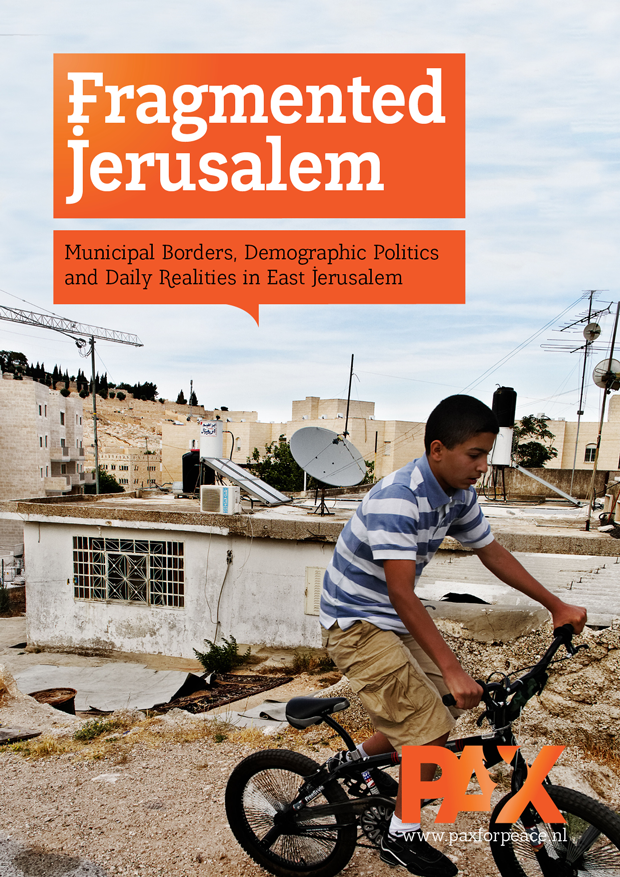On 14 May, the United States will move its Embassy from Tel Aviv to Jerusalem. A highly controversial step, since it departs from the international consensus that any change in the status of the city will only be internationally recognized after Israeli’s and Palestinians have mutually agreed on its future status.
In the report ‘Fragmented Jerusalem’, Palestinian and Israeli experts discuss the new Israeli policy proposals and current demographic politics applied in East Jerusalem, and their impact on daily life in the Palestinian neighborhoods.
Since the de facto occupation of East Jerusalem by Israel in 1967, the Israeli strategic and planning policies for the city was aimed at implementing the vision of Jerusalem as the undivided and integrated Israeli capital. This went hand in hand with policies to weaken the Palestinian presence in the city. Building restrictions in East Jerusalem, the construction of the Separation Barrier, the revocation of residence permits and security interventions have left the Palestinian community in East Jerusalem increasingly fragmented and marginalized. For many years, PAX has worked with local initiatives and NGOs to strengthen the position of Palestinians in East Jerusalem.
The report especially focuses on current policy-suggestions to change the borders of the Jerusalem Municipality, that will further aggravate the situation in those neighborhoods that are already separated from the city center through the Separation Barrier.
The report offers policy recommendations based on the assumption that a peaceful and sustainable solution to the Israeli-Palestinian conflict is only possible with Jerusalem as a shared capital for two nations, a city holy to three religions, a city where inhabitants do not feel like strangers.
Read the full report here.




